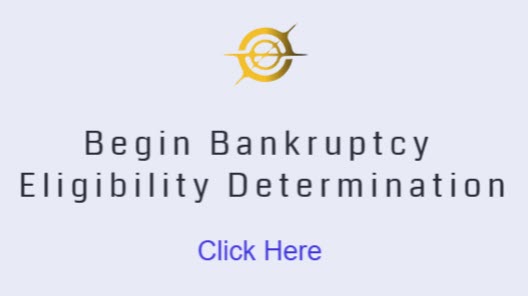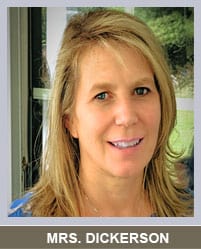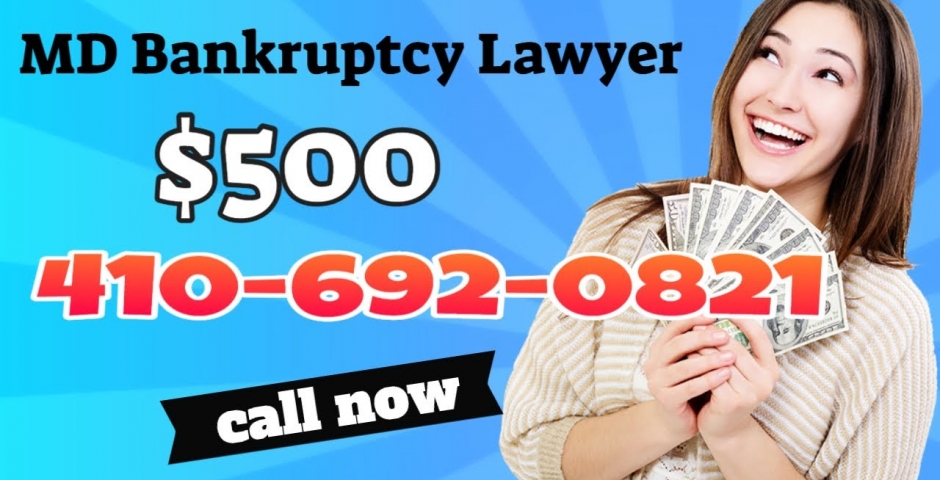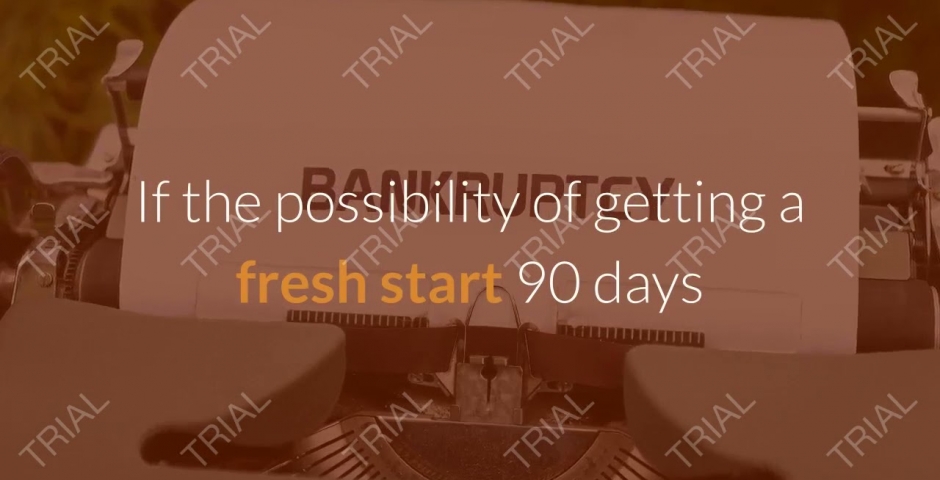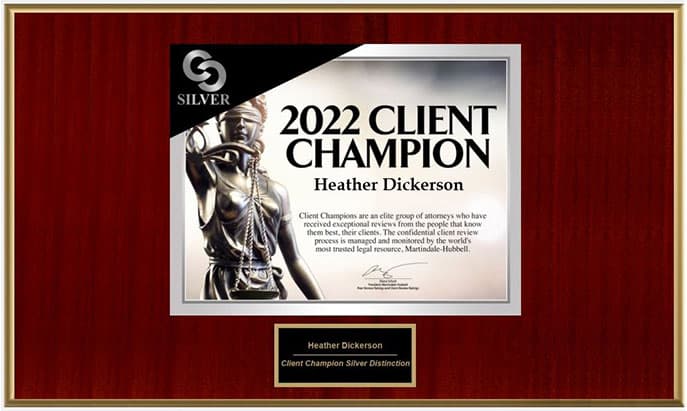
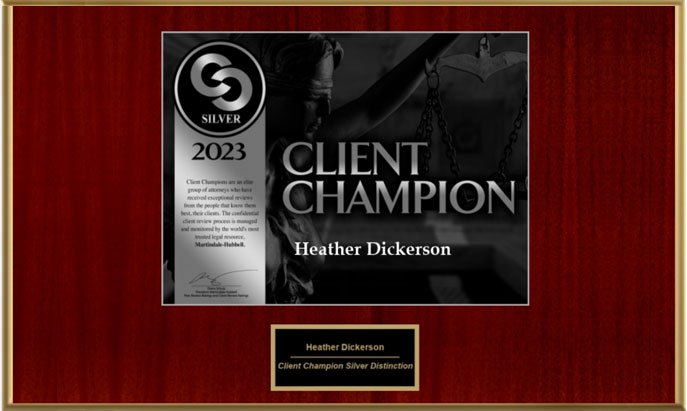
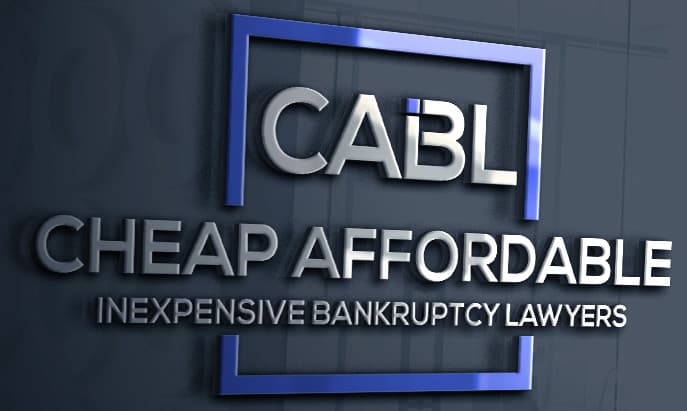
Stop the Maryland Utility companies from cutting off our electric. Learn now by call our office today!
HEATHER L DICKERSON
MARYLAND BANRUPTCY LAWYERS
AN OVERVIEW
Our mission is to help regular Marylanders get a “fresh start” from their debt problems. We do this by charging them a fee they can afford while handling their case properly We treat all of our clients with respect so we are grateful when they return that respect and are appreciative of our low fees. If you believe you can work with us in this way to SAVE YOU MONEY, we will help find the best bankruptcy solution for your individual debt problems especially now. Bankruptcy Lawyers Attorneys Baltimore MD

Heather L Dickerson worked for the largest and busiest bankruptcy firms in the state of Maryland. Her 29 years as a licensed Maryland Attorney along with her experience in thousands of Maryland Bankruptcy cases allow her to fully represent you in your case.
With Heather L Dickerson, they use their knowledge of the United States Bankruptcy code and their experience to help people all throughout Maryland obtain their fresh start and relief from the pressures of having too much debt. They will sort through your financial situation and determine whether Chapter 7 or Chapter 13 will help you achieve your goals or if bankruptcy is right for you.
NOTE: Law Firm accepts chapter 13, and chapter 7 cases for all counties in Maryland.
What we offer
Hello to all Marylanders facing overwhelming debt issues. Whether you are looking for an affordable bankruptcy lawyer in Baltimore MD or a $500 bankruptcy attorney near me, we can help you get a fresh start. I am an affordable bankruptcy attorney who can help the entire state of Maryland for chapter 13 and CHAPTER 7 BANKRUPTCY CASES. Some people might consider me a Harford county bankruptcy attorney or they might ask if we are less expensive than the $690 cost bankruptcy attorney and our answer is a resounding YES! Are we technically a $500 bankruptcy attorney? I will let you decide but I believe that my legal fee of $599 is close enough for me to fit the criteria. While I don’t like the term “cheap bankruptcy lawyer in Baltimore Maryland”, this is probably the best and quickest way to say what we are doing. Whether you need a chapter 7 or chapter 13, low cost legal fees like ours allow many more people who need to file bankruptcy in their lives to file. We can boldly and proudly say that whether you want to say cheap, affordable or inexpensive, bankruptcy lawyers in Maryland, that is what we have been, are and will be while practicing bankruptcy law throughout the state. I will warn you to watch out for no money down chapter 7 or zero down bankruptcy lawyers near me. The reason is that sometimes, these situations wind up costing you a lot more than we charge our clients. Since we cover the state, you can consider us to be cheap chapter 7 and cheap chapter 13 lawyers near me(you).
How soon after a Chapter 7 can I buy a house?
After a chapter 7 bankruptcy, you can usually buy a house no more than two years after bankruptcy. In rare circumstances, some lenders will extend that to three years.
If you wait more than two years, the bankruptcy will be discharged. At that point, any debts that were discharged in the bankruptcy will be invalid, and lenders will again consider you a risky borrower.
In the rare event where the lender does not give a normal two-year restriction, it’s most likely because the lender is making the restriction up. No lender is going to decide, ‘I’m going to let you buy a home after 2 years, but I’m going to charge you 30 percent interest.’
There are two possibilities for why a lender might make a longer time restriction.
- The lender is bluffing.
- The lender has made a mistake.
If a lender is bluffing, it doesn’t really matter how long you have to wait before you can buy a home. The lender is bluffing because it has to, because if you or the seller makes any move, the lender will find out. Except, of course, that in the real world, nobody pays attention.
If a lender’s mistake is letting you buy a home more than 2 years after bankruptcy, don’t blame the lenders. Lenders don’t know. They rely on credit reporting agencies to tell them whether or not someone has been bankrupt. If a mistake is made, they won’t know.
If, on the other hand, the lender is bluffing, and it turns out that it is not a mistake, that’s not the end of the world. If the mistake wasn’t the fault of the lender, then you can probably resolve it.
So, if your house purchase has been delayed, find out whether the lender is bluff
What is the minimum amount of debt for Chapter 7?
There is no minimum or maximum amount of debt for Chapter 7 bankruptcy.
What happens when you file bankruptcy Chapter 7?
In the case of Chapter 7, most debts that are still in your name when you file can be dismissed.
Child support, alimony, and other forms of unpaid debts owed because of divorce or marriage can’t be discharged.
All other types of debt are eliminated in a Chapter 7 bankruptcy.
Non-dischargeable debts are debts that will never be forgiven by the court, regardless of what happens.
The only thing that won’t be considered as a debt is property purchased with the intent to commit a crime (crime paraphernalia), as well as student loans.
The bankruptcy process in the United States allows you to start over with a clean slate by discharging debts that you cannot repay or that don’t make sense to continue repaying.
The shortest bankruptcy process in Maryland is Chapter 7 bankruptcy, which takes between 3 to 5 months. Chapter 13 bankruptcy in Maryland takes between 36 to 60 months, and Chapter 11 bankruptcy takes between 5 to 10 years.
Chapter 7 bankruptcy in Maryland requires the debtor to give up certain property, such as a vehicle or a house. The debtor is given a chance to repay certain creditors. The debtor gets to keep any property that is deemed exempt.
Chapter 13 bankruptcy in Maryland requires the debtor to pay certain debts, such as credit cards and medical bills, over a period of between 3 and 5 years. The debtor is given a chance to repay certain creditors. The debtor gets to keep any property that is deemed exempt.
Chapter 11 bankruptcy in Maryland requires the debtor to pay certain debts over a period of time. The debtor is given a chance to repay certain creditors. The debtor gets to keep any property that is deemed exempt.
If the bankruptcy process in Maryland is Chapter 11 bankruptcy, the debtor is obligated to propose a repayment plan to the court. The debtor will be exposed to certain limits, such as the amount the debtor can devote to debt repayments and the frequency the debtor can file repayment plans. The debtor is subject to judicial review of any repayment plan. The court will approve a repayment plan, or it can modify it.
A number of factors can influence the bankruptcy process in Maryland. The bankruptcy process in Maryland can be expedited if the debtor files bankruptcy jointly, Chapter 7 bankruptcy is a liquidation proceeding. You lose all your assets to a trustee, who sells them off to pay your creditors.
Most people think this automatically means they have nothing. And most people who file bankruptcy are surprised to discover that they do have something. But bankruptcy is a blunt instrument. It wipes away your debts, but it doesn’t necessarily wipe out your assets. Bankruptcy is an emergency procedure, and it’s not uncommon for people to get what they need out of it. But for some people it a disaster. They lose everything.
In Chapter 7, most of your debts are wiped out. If you have property you want to keep, you can usually sell it to pay off your debts; you can’t keep it, though, if you owe the IRS more than $1,000.
You have to make a formal bankruptcy petition, and swear to the truth of everything in it. Then a judge appoints a trustee who looks over your financial affairs. The trustee decides which of your debts to keep and which to wipe out. The trustee then sells whatever property you have, and transfers the money to your creditors.
Before filing bankruptcy, it’s important to think hard about whether it’s the right thing to do. There are costs to bankruptcy, but there are also costs to doing nothing.
If you owe a lot of money, and can’t pay it back, bankruptcy can be a way of escaping debt. (However, even if you are perfectly solvent, bankruptcy can have other costs, and for some people bankruptcy is the wrong choice.) If you are already in bankruptcy, it can be useful to get out of it again. And bankruptcy can be a good way to reorganize your business.
But before you file for bankruptcy, you need to think hard about whether the bankruptcy is your best move. If you are deep in debt and don’t know what to do, bankruptcy might be the right answer. But bankruptcy may be the wrong choice for people who don’t owe much, or who have assets they could use to pay off their debts.
Some debts are harder to pay off than others. A few thousand dollars on a credit card can be repaid if you stop charging things, but many people can’t pay off student loans, car loans, or medical bills. If you owe a lot of money and can’t pay it back, bankruptcy can at least stop creditors from harassing you. That can be a huge relief. But bankruptcy comes with some costs.
Chapter 7 bankruptcy is for people and businesses who can’t pay their debts anymore.
The bankruptcy code says that if you can’t repay your debts, you can’t be stuck with them forever. You can reduce them to something you can repay. And if you can’t repay them, you can get rid of them completely.
Chapter 7 bankruptcy is for people and businesses.
You cannot be a chapter 7 bankruptcy debtor unless (1) you are or have been a citizen or resident of the United States, (2) you pass the ‘means test,’ which asks whether your income is higher than the average for your state, and (3) you are or have been a ‘consumer’ (someone who buys goods or services on credit).
Consumer debts are things like credit cards, loans, and leases. Business debts include things like business loans, loans to buy or rent real estate, and payments to employees.
In chapter 7 bankruptcy, the court appoints a trustee. The trustee sells your assets, pays your creditors, and distributes the money to your creditors.
Some debts cannot be discharged in chapter 7 bankruptcy. These include debts that you owe education or medical institutions for things you did while you were a student or patient, debts for alimony or child support, debts for fraud, debts for willful and malicious injury, debts for death or personal injury caused by drunk driving, debts for restitution, debts for taxes, debts for debts incurred through fraud or willful and malicious injury, debts for debts incurred through fraud or willful and malicious injury, and debts Chapter 7 is bankruptcy. You lose everything. Not just the things you have, but the things you could sell. And you can’t file Chapter 7 anymore. You can’t lose everything. But you can lose everything.Bankruptcy used to be common. Until the 1930s, you could go bankrupt by being poor, by having many creditors, or by being too far behind on your debts. Bankruptcy laws were set up to help people who could not pay their debts. But by the 1970s the bankruptcy laws had become a way for people who were behind on their mortgages to hide their financial problems.
Today bankruptcy is rare. If you overextend yourself, you can get behind, but you can still pay your bills. And in fact, most people in financial trouble do not go bankrupt. But bankruptcy is still attractive. It allows you to keep your house, your car, your piece of the American dream. It lets you keep all your stuff, not because you can afford it, but because the law says you have no choice but to keep it.
Bankruptcy is attractive because it works. It stops the creditors immediately. But when you lose everything, you lose everything. There is no bankruptcy protection for the assets you preserve by filing Chapter 7.
Bankruptcy is attractive because it is cheap. It costs you nothing. It costs the creditors everything. Bankruptcy is attractive because it works. But it is also attractive because it is cheap. And cheap things are rarely good.
Bankruptcy is attractive because bankruptcy is cheap. But it is also attractive because it is easy. And easy things are sometimes good and if you need it, bankruptcy can be awesome. To people who find themselves strapped for cash, it means giving up everything they own. To people who find themselves losing control of their business or home, it means giving up control. To people who find themselves unable to keep up their payments, it means giving up their possessions. Bankruptcy is not meant to punish you. It is meant to encourage you to start over. It is meant to help you, not hurt you. CALL US TODAY @ 410-692-0821
Testimonial
Locations
- Baltimore
- Germantown
- Frederick
- Ellicott City
- Glen Burnie
- Columbia
- Silver Spring
- Waldorf
- Rockville
- Gaithersburg
- Bethesda
- Dundalk
- Bowie
- Towson
- Aspen Hill
- Severn
- Wheaton
- North Bethesda
- Bel Air South
- Potomac
- Odenton
- Catonsville
- Woodlawn
- Hagerstown
- Essex
- Annapolis
- Clinton
- Severna Park
- Chillum
- Randallstown
- Olney
- Owings Mills
- Montgomery Village
- Pikesville
- Salisbury
- College Park
- Bel Air North
- Parkville
- Eldersburg
- Carney
- Milford Mill
- Pasadena
- Crofton
- South Laurel
- Perry Hall
- Reisterstown
- Ilchester
- Lochearn
- Edgewood
- Laurel
- Fairland
- Middle River
- North Laurel
- Clarksburg
- Suitland
- Fort Washington
- North Potomac
- Arnold
- Greenbelt
- Landover
- Camp Springs
- Elkridge
- Ballenger Creek
- Cockeysville
- Rosedale
- Lake Shore
- Langley Park
- Arbutus
- White Oak
- Cumberland
- Westminster
- Seabrook
- Hyattsville
- Oxon Hill
- Beltsville
- Takoma Park
- Maryland City
- Redland
- Ferndale
- Parole
- Easton
- Glassmanor
- Calverton
- Glenmont
- East Riverdale
- Hillcrest Heights
- Adelphi
- Aberdeen
- Elkton
- Cloverly
- Damascus
- Rossville
- Brooklyn Park
- California
- Kemp Mill
- Havre de Grace
- Summerfield
- Colesville
- Kettering
- Glenn Dale
- Bensville
- New Carrollton
- Riviera Beach
- Urbana
- Annapolis Neck
- Ocean Pines
- Forestville
- Joppatowne
- Mays Chapel
- Overlea
- Cambridge
- Brock Hall
- Accokeek
- Mitchellville
- Travilah
- Lanham
- Lexington Park
- Largo
- Walker Mill
- Halfway
- Fort Meade
- Timonium
- Rosaryville
- Linthicum
- Bel Air
- La Plata
- Friendly
- Lake Arbor
- Westphalia
- Brandywine
- Burtonsville
- Scaggsville
- Chesapeake Ranch Estates
- Chevy Chase
- Mount Airy
- Jessup
- Bladensburg
- Marlboro Village
- White Marsh
- Edgewater
- Linganore
- Marlton
- Leisure World
- North Kensington
- Fallston
- South Kensington
- Cape St. Claire
- Coral Hills
- Edgemere
- Lansdowne
- Frostburg
- Garrison
- Four Corners
- Mount Rainier
- Mayo
- Baltimore Highlands
- Temple Hills
- Bryans Road
- Robinwood
- Thurmont
- Stevensville
- Riverdale Park
- Ocean City
- Brunswick
- Walkersville
- Lutherville
- Taneytown
- Woodlawn CDP
- Hillandale
- Forest Glen
- Darnestown
- Hampstead
- Savage
- Bowleys Quarters
- Cheverly
- Fairwood
- Glenarden
- Chesapeake Beach
- Riverside
- Ashton-Sandy Spring
- Naval Academy
- District Heights
- Cresawn
- Spring Ridge
- Marlow Heights
- Fountainhead-Orchard Hills
- Shady Side
- Fruitland
- Friendship Heights Village
- Centreville
- Poolesville
- Layhill
- Middletown
- Silver Hill
- Berlin
- Chestertown
- Manchester
- Seat Pleasant
- Deale
- Chester
- Hampton
- Woodmore
- Denton
- Peppermill Village
- Capitol Heights
- Perryville
- Kingsville
- West Laurel
- Fulton
- West Ocean City
- National Harbor
- Melwood
- Pocomoke City
- Riva
- Leonardtown
- Sykesville
- Brookmont
- St. James
- Boonsboro
- Pleasant Hills
- Indian Head
- Delmar
- North East
- Princess Anne
- Grasonville
- Huntingtown
- Marlboro Meadows
- Brentwood
- La Vale
- Emmitsburg
- Berwyn Heights
- Springdale
- Andrews AFB
- Paramount-Long Meadow
- Golden Beach
- Jarrettsville
- Chevy Chase
- Smithsburg
- Prince Frederick
- Braddock Heights
- Aberdeen Proving Ground
- Gambrills
- Rising Sun
- Herald Harbor
- Federalsburg
- Dunkirk
- University Park
- Crisfield
- Forest Heights
- Maugansville
- Konterra
- Owings
- Adamstown
- Perryman
- Kensington
- Hughesville
- Wilson-Conococheague
- Jefferson
- Drum Point
- Croom
- Long Beach
- Solomons
- Cabin John
- Spencerville
- Williamsport
- North Beach
- Chevy Chase Village
- Mountain Lake Park
- Snow Hill
- Hurlock
- Myersville
- Queensland
- Kingstown
- Derwood
- Greensboro
- Arden on the Severn
- Charlotte Hall
- Point of Rocks
- Lusby
- Oakland
- Mechanicsville
- Baden
- Bartonsville
- Westernport
- Ridgely
- Landover Hills
- Bel Air
- Crownsville
- Hancock
- Fairmount Heights
- Pittsville
- Edmonston
- Colmar Manor
- New Windsor
- Woodsboro
- Cottage City
- Potomac Heights
- Buckeystown
- Rock Hall
- Morningside
- Somerset
- Keedysville
- Algonquin
- Bowling Green
- Highland
- Charlestown
- Cavetown
- Hebron
- Pylesville
- Lonaconing
- St. Michaels
- Garrett Park
- Queen Anne
- Willards
- Tilghman Island
- Trappe
- Libertytown
- Martin’s Additions
- Chevy Chase View
- Mount Vernon
- Union Bridge
- Calvert Beach
- Aquasco
- Monrovia
- Tilghmanton
- Funkstown
- Grantsville
- Cobb Island
- Potomac Park
- Highfield-Cascade
- Piney Point
- Chevy Chase Section Three
- New Market
- Finzel
- Port Deposit
- Eden
- Mount Savage
- Church Hill
- Queenstown
- Preston
- Chevy Chase Section Five
- Chesapeake City
- McCoole
- Mount Aetna
- Sharwn
- Upper Marlboro
- Cecilton
- Eckhart Mines
- Galesville
- Sharpsburg
- Bryantown
- Cordova
- Oxford
- North Chevy Chase
- Tall Timbers
- Millington
- Fairlee
- Galena
- Newark
- Bowmans Addition
- Washington Grove
- Corriganville
- North Brentwood
- Cedarville
- Loch Lynn Heights
- Pomfret
- Kent Narrows
- Secretary
- Darlington
- St. Leonard
- Pleasant Grove
- Chance
- Rawlings
- Friendsville
- Leitersburg
- Sudlersville
- Allen
- Mount Lena
- Kennedyville
- Fairplay
- Broomes Island
- Parsonsburg
- Barton
- Midland
- Ellerslie
- Midlothian
- Bagtown
- Laytonsville
- East New Market
- Zihlman
- Clear Spring
- Fairmount
- Deer Park
- St. George Island
- Mardela Springs
- Sabillasville
- Deal Island
- Shaft
- Tolchester
- Rosemont
- Chewsville
- San Mar
- Nanticoke
- West Pocomoke
- Garretts Mill
- Downsville
- Betterton
- Accident
- Grahamtown
- Beaver Creek
- Butlertown
- Mapleville
- Breathedsville
- Kitzmiller
- Friendship
- Charlton
- Jugtown
- Quantico
- Yarrowsburg
- Glen Echo
- Vienna
- Greensburg
- Moscow
- Pinesburg
- Edgemont
- Pecktonville
- Edesville
- Flintstone
- Sandy Hook
- Jennings
- Goldsboro
- Gilmore
- Taylors Island
- Bier
- Jesterville
- Madison
- Benedict
- Danville
- Fishing Creek
- Bloomington
- Franklin
- Chonk
- Burkittsville
- Barnesville
- Mount Briar
- Dargan
- Barclay
- Hillsboro
- Smith Island
- Tyaskin
- National
- Brookeville
- Henderson
- Marydel
- Ringgold
- Klondike
- Galestown
- Templeville
- Church Creek
- Trego-Rohrersville Station
- Rohrersville
- Highland Beach
- Bivalve
- Detmold
- Frenchtown-Rumbly
- Girdletree
- Williston
- Vale Summit
- Gorman
- Cearfoss
- Mercersville
- Big Pool
- Georgetown
- Stockton
- Rock Point
- Crellin
- Barrelville
- Carlos
- Dawson
- Worton
- Gapland
- Antietam
- Fort Ritchie
- Hutton
- Eagle Harbor
- Whitehaven
- Big Spring
- Brookview
- Eldorado
- Luke
- Spring Gap
- Whaleyville
- Bakersville
- Oldtown
- Powellville
- Dames Quarter
- Pondsville
- Ernstville



